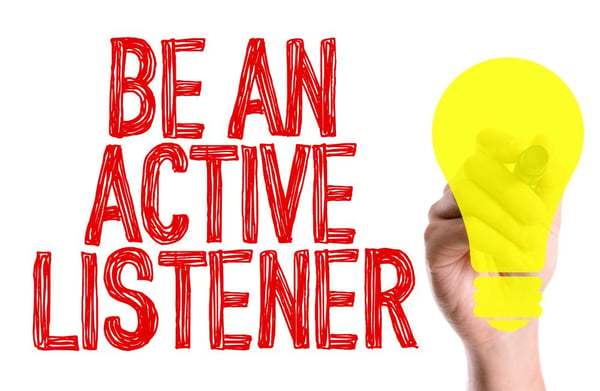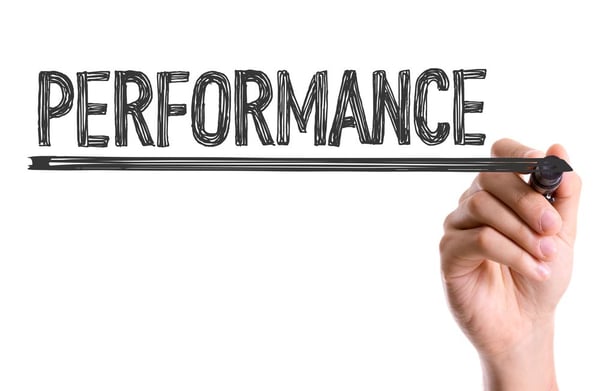For some, keeping clients happy entails excellent products and customer service. But for fitness professionals, personal trainers, and nutrition coaches, keeping your client or clients happy is more than just having mantras and pinning inspiring quotes and other motivational fitness goals.
Health and fitness professionals know that you must truly care about your client's progress to be successful. A good nutrition coach knows how to motivate and inspire his clientele. Not only will this help them not give up when challenges arise, but it will also boost their overall motivation levels.
Unlike going to the gym with a personal trainer, which is a part of the fitness journey, nutrition is a different beast to be tamed. Nutrition coaching is essentially your clients' relationship with their bodies and their food choices. It is purely cognitive, the urge to eat what is right from good and even the very notion of which food choices are healthier for them that positively affects their weight loss goals and which lifestyle changes can contribute to a balanced and healthy physique.
This being the case, here are some important tips that will help you keep your clients happy and motivated.

1. Listen To Your Client
Many people who are struggling with nutrition and fitness also grapple with building a healthy relationship with their body and their food and diet. However, many nutrition coaches don't look at it that way.
Instead of taking a closer look at a client's lifestyle and diet, they mindlessly give meal plans and monitoring apps that do not focus on providing a customized plan for each person but rather a one-size-fits-all approach.
Know that each client has a different history, a different lifestyle and eating habits, food preferences, likes and dislikes, allergies, or existing conditions. The best approach is to build rapport with your clients not just in fitness but also in nutrition.
This means that not only you must establish clear goals but as well as clear expectations of what you both want to achieve. In addition, as a nutrition coach, you must also know what your client is eating every day. It also means that you need to know their likes and dislikes, their lifestyle, and sometimes, even knowing how they manage stress is crucial in their overall health.
As a coach and their ally, you need to be on the same page. In listening, you will be able to fully understand them and craft a nutritional plan with the right food choices that will work for their specific body type, needs, and lifestyle.

2. Motivation Is Key
Nutrition doesn't have the same solid parameters as fitness that you can immediately measure. Nutrition is about attitude and mindset towards food. Check-in with your client, listen to them, take note of their struggles in their diet and food habits. Reinforce good health practices, and motivate them to build and work on those.
Many clients have little to no knowledge of nutrition, so they're having difficulty losing weight, gaining muscle, and improving human performance. For clients to take an active role in their health and fitness, they need to be motivated to make healthy changes in their diet. This is why nutrition coaches need to be knowledgeable and passionate about seeing their clients succeed and achieve their health and fitness goals.
3. Give Them A Pat On The Back
Going along the lines of motivation, it's really those random pats on the back that make your clients motivated and happy with their progress.
For most nutrition coaches, you might be following your clients on social media. If you see them making good nutrition choices and eating habits, commend them. If you see them in public eating the right thing, hit them up and cheer them on. After all, losing weight, and gaining muscle, is not an easy journey. You were in their shoes, too, before you became a nutrition coach.

4. Give Them Tangible Reports Of Their Progress
As much as nutrition may not be fully quantifiable, the same way progress in the gym is, most clients will greatly appreciate their progress reports. This is why so many nutrition coaches use apps for this purpose.
As their nutrition coach, keep tabs on them, show them the number of calories they would eat before compared to the present. Look back at their unhealthy eating habits and show them how far they've come in their health and fitness journey.
If you can, you could collaborate with their personal trainer to measure health and fitness-related components where their lifestyle change or new eating habits have positively affected their weight loss and overall performance.
5. Frame Weaknesses As Areas For Improvement
Everyone has a different starting point. There will be days that your client might give in to their food temptations, and these days can be weeks or months. But you, as their nutrition coach, shouldn't drag them for this.
There are many internal struggles that you need to understand and empathize with to understand your client fully. Don't shame them for eating way too many more calories as prescribed, don't shame them for having a cheat week or month. Good eating habits and overall nutrition take time, this is a part of their life they need to be patient with, and you need to impart the knowledge to them as their coach and be their support network.

6. Feedback On Their Habits Wouldn't Hurt. Just Do It Nicely
We've seen many nutrition coaches who aren't exactly friendly to their clients. They use disciplinary tactics that make them feel like nutrition coaching is just another job for them, not something they're passionate about.
We understand that you may hold yourself to high standards and expect the same from your clients. But it would help if you also acknowledged their efforts, gave them credit when credit is due. Nonetheless, this doesn't mean that you need to always go soft on your clients. You are a coach, and you need to tell them what went wrong with their nutrition and what habits they need to improve on or get rid of. As a nutrition coach, you also need to show them what they need to work on with their eating habits and put in more energy.
Just be mindful of how you tell them and stay firm but not too harsh. You'll also want to take the time talking about the importance of this meal plan, how it can affect them, and, more importantly, how their own decisions can affect their fitness journey.
7. This Is Coaching, Not Helicopter Parenting
We've stressed enough in this article that nutrition is mind over matter, and creating good eating habits is key. Do not forget that you coach, guide, and help clients, not rowdy kids. You're not one of their family members, so you don't need to be circling your clients all the time.
A slip-up isn't the end of the world. Even professional athletes make mistakes. It's part of it. And things are bound to go wrong from time to time. Learn from the experience and impart your nutrition knowledge to your clients because it's not easy to lose weight or gain muscle. Knowing important details such as these can help clients understand why this is important to them and why they are in nutrition coaching in the first place.
If you really need to, keep a food diary with them to let them keep track of their progress and where you can monitor their diet as well.

8. Let Them Eat Cake
The idea of a nutrition coach daunts most people because they feel like they will not be eating at all anymore or that they will be forced into bizarre diets and will no longer be able to eat their comfort food.
Yet, as much as you coach your clients about their eating habits and well-being, you also need to recognize those little milestones. You can make coaching a cakewalk if clients know there is no reason to be afraid of nutrition coaching.
Many coaches take it too far with clean eating and making their clients feel like food is their enemy. They make them feel guilty for eating pizza or cake and make themselves look like the bad guy when all they want to do is to help clients become even healthier than ever before. It's about coaching, not helicopter parenting.
Reassure them that this isn't the end of their relationship with cake, burgers, fries, milkshakes, happy hour, and everything else. You will be working on creating a balance and better food habits for them to eat the food they love in a better state, mindset, physicality, and overall good nutrition.
Let them eat cake, but in moderation, not in excess.
Wrapping It Up
For fitness professionals, to truly coach clients and make them happy is to make them feel that this process of creating better eating habits is a stride towards achieving a better quality of life.
Moreover, you also need to remember that there are many forms of motivation, but convincing people is just one of the most effective methods. When you explain the importance of their nutrition and why it's important for them to change how they eat, you give them a reason to work better.
If you can emphasize the effects of their decision and how it will affect what they set out to do with you as their nutrition coach, it will give them more reasons to stick with their meal plan and pursue their weight loss goal/weight gain journey to achieve their weight gain long-term health-fitness success.






